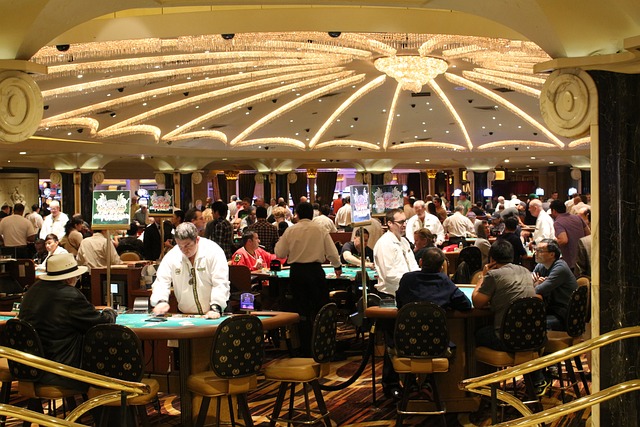Since the legalization of gaming in Maryland in 2008, the casino industry has experienced remarkable growth, significantly reshaping the state’s economic landscape. The establishment of casinos has not only generated substantial tax revenue but has also led to the creation of thousands of jobs across various sectors. This surge in employment opportunities has positively affected local communities, as more residents find work in the hospitality, entertainment, and service industries. Moreover, the influx of visitors drawn to these casinos has contributed to the growth of tourism, benefiting local businesses and further enhancing infrastructure development. Additionally, promotions such as 300 free spins no deposit have attracted even more visitors, incentivizing them to explore what Maryland’s casinos have to offer.
The economic benefits extend beyond immediate job creation and tax revenue. Casinos have become vital players in community investment, contributing to local charities and funding public services. The partnerships formed between casinos and local governments have led to improved roads, parks, and community facilities, enhancing the quality of life for residents. Furthermore, the ongoing expansion of the casino industry in Maryland indicates a promising future, with potential for continued economic development and increased funding for vital public programs. This multifaceted impact highlights the significant role casinos play in fostering economic growth and supporting Maryland communities.
Job Creation and Employment Opportunities
One of the most significant economic impacts of casinos in Maryland is job creation. The casino industry offers thousands of employment opportunities, spanning various roles from gaming positions to hospitality services. For example, major establishments like Maryland Live! and Horseshoe Casino Baltimore have built diverse workforces that support local economies. The influx of jobs leads to a positive ripple effect, benefiting surrounding businesses and increasing disposable income within communities, which in turn fosters further economic activity.
Beyond direct employment, the casino industry also stimulates ancillary job growth in sectors such as retail, dining, and entertainment. Local restaurants, shops, and service providers often see increased patronage from both casino employees and visitors, leading to more hiring and economic expansion. Additionally, as casinos invest in their facilities and offerings, they attract tourists, which further enhances local tourism revenue. This symbiotic relationship between casinos and local businesses illustrates the comprehensive economic benefits that the casino industry brings to Maryland, highlighting its role as a catalyst for community development and prosperity.
Increased Tax Revenue for Local Governments
Casinos in Maryland play a crucial role in generating significant state and local tax revenues, which support essential services like education, public safety, and infrastructure development. The state imposes taxes on gaming revenues, directing these funds toward various public programs. This financial contribution is vital for improving community services and promoting economic growth, as it enables funding for local projects that enhance residents’ quality of life.
To illustrate the impact of these tax revenues, consider the following contributions:
- Education Funding: A substantial portion of casino tax revenues is allocated to public schools, enhancing educational resources and infrastructure. This funding helps improve student outcomes through updated facilities, technology, and programs that support learning and development.
- Public Safety Initiatives: Taxes collected from the gaming industry also bolster public safety efforts. These funds can be used for law enforcement, emergency services, and community programs, contributing to safer neighborhoods and increased overall security for residents.
- Infrastructure Projects: The financial support from casino revenues aids in local infrastructure development, including road repairs, public transportation enhancements, and community facility upgrades. Improved infrastructure not only enhances daily life for residents but also attracts businesses and tourists, driving further economic growth.
In summary, the financial contributions from Maryland’s casinos extend beyond the gaming floor, directly impacting the community through enhanced public services and infrastructure. By investing in these essential areas, casinos play a pivotal role in fostering a thriving and sustainable environment for all Maryland residents.
Boosting Tourism and Local Businesses
The presence of casinos in Maryland significantly boosts tourism, creating numerous economic opportunities for local businesses. Tourists drawn to the gaming experience often extend their spending to hotels, restaurants, and various entertainment options. This influx of visitors bolsters the hospitality industry, generating increased revenue for local businesses and enhancing Maryland’s appeal as a prime travel destination.
Several key factors illustrate how casinos contribute to the tourism economy:
- Hotel Occupancy Rates: With an influx of tourists, local hotels experience higher occupancy rates, leading to increased revenues. Many casinos collaborate with nearby hotels to offer packages that attract visitors, creating a win-win situation for both industries. This collaboration helps fill rooms while providing guests with convenient access to gaming and entertainment.
- Restaurant Revenue: Casinos often attract food enthusiasts, leading to increased patronage at local restaurants. Tourists frequently seek dining experiences that showcase the region’s culinary offerings, benefiting not only the restaurants within casinos but also those in the surrounding area. This surge in customers stimulates growth in the food and beverage sector, promoting a vibrant dining scene.
- Entertainment Events: The casino presence encourages the organization of entertainment events, from concerts to festivals, which further draws tourists. These events not only provide additional revenue streams for local businesses but also foster a lively atmosphere that enhances the overall tourism experience. This synergy creates a dynamic environment that attracts visitors year-round.
In conclusion, the economic impact of casinos on Maryland extends beyond the gaming floor. By boosting tourism and supporting local businesses, casinos play a vital role in creating a thriving economic ecosystem that benefits both residents and visitors alike. This positive ripple effect solidifies Maryland’s position as an attractive travel destination, rich in opportunities for exploration and enjoyment.
Conclusion
The economic impact of casinos on local communities in Maryland are multifaceted, encompassing job creation, increased tax revenue, tourism growth, and infrastructure improvements. While there are challenges to address, the benefits provided by the casino industry have significantly contributed to the economic vitality of the state. As Maryland continues to evolve its gaming landscape, ongoing collaboration between casinos and local communities will be essential to ensure sustainable growth and development.







Recent Comments